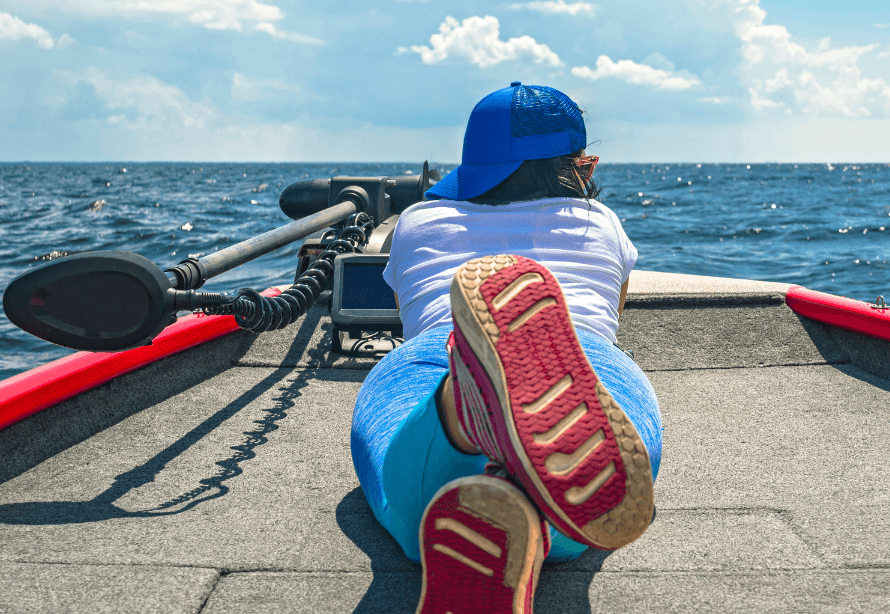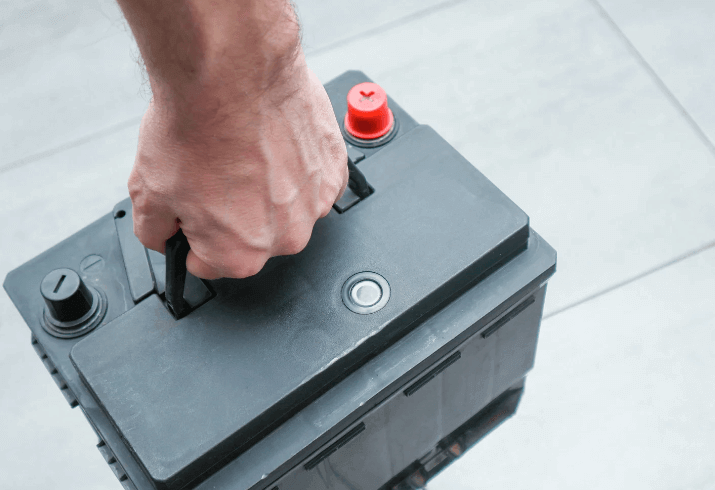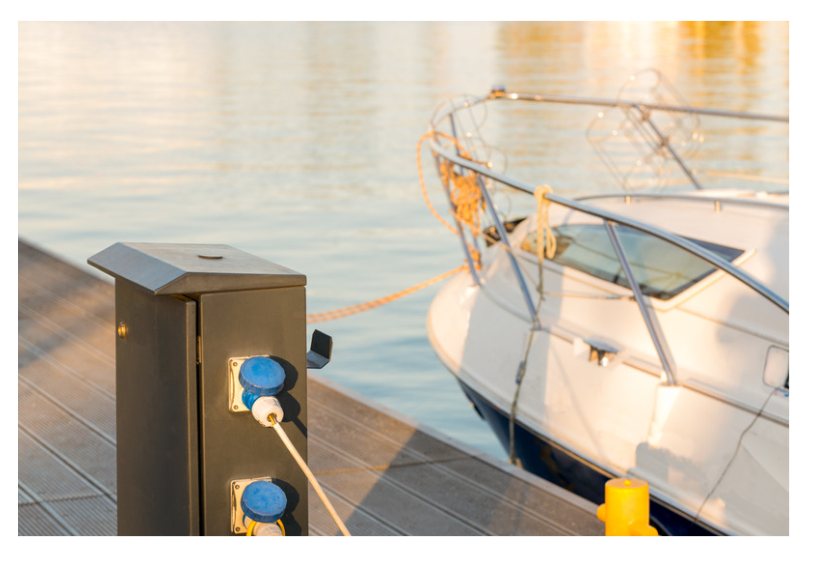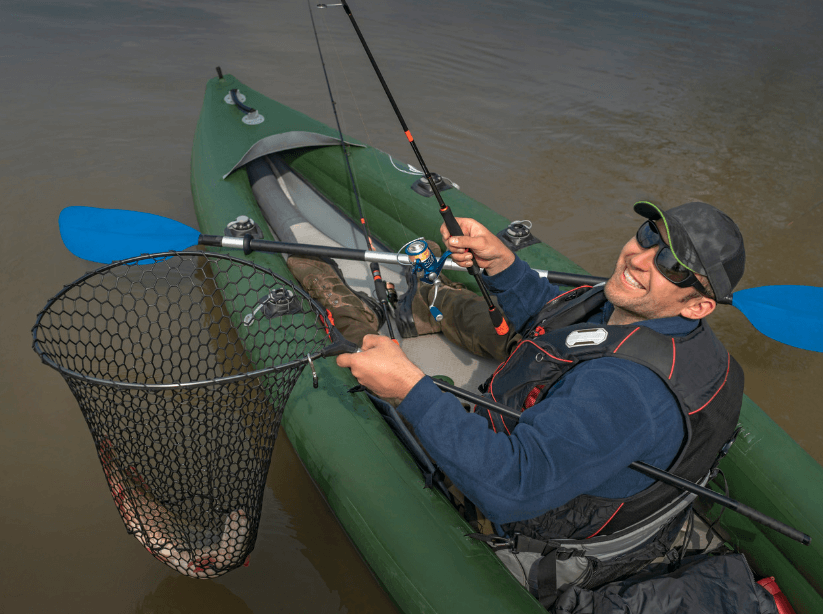
In the world of kayak fishing, a fish finder can be an invaluable resource. However, a fish finder is only as good as its power source. Choosing the right battery for a kayak fish finder is essential to ensure long-lasting, reliable performance while out on the water.
Read our entire content to learn about the types, sizes and essentials for choosing the best fish finder kayak batteries to ensure you have more fishing power.
Why a dedicated battery is important for your kayak fish finder
For those new to kayak fishing, it’s important to understand that fish finders are usually battery powered. Using a specialized fish finder kayak battery offers several advantages, such as longer power duration, improved portability and efficient recharging.
Improved performance: Optimized batteries for fish finders provide constant voltage, ensuring consistent, clear screen quality.
Portable and Lightweight: Fish finder batteries are usually compact, making them easy to transport and fit into limited kayak space.
Reliability: Quality batteries come with guarantees and long lifespans, so you spend more time fishing and less time troubleshooting power issues.
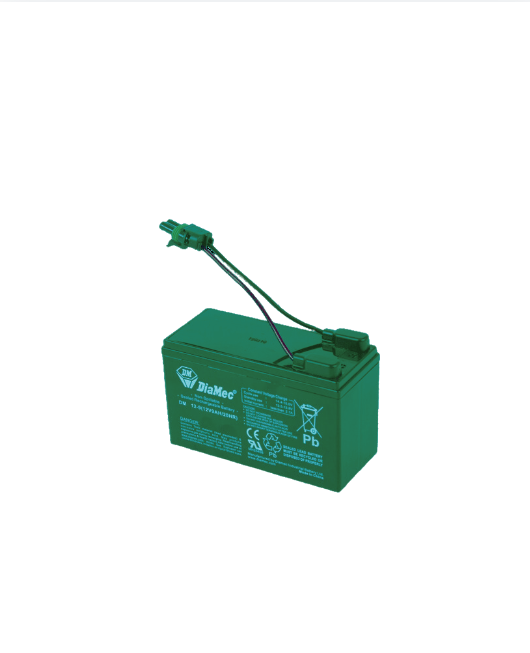
How do you choose a battery for a fish finder kayak?
Choosing the right fish finder battery for your kayak involves balancing power, weight and budget. Here are the primary factors to consider:
1. Battery capacity
Measured in ampere-hours (Ah), a battery’s capacity determines how long it can power your fish finder. Higher Ah rating means longer power time but heavier battery.
Typical range: 7-20 Ah for kayak fishers.
Tip: Choose a battery that lasts at least 8 hours if you plan to go on a day trip.
2. Size and weight
Kayak space is limited, so size and weight are important. Larger batteries provide more power but can weigh down a lighter kayak. Choose a compact battery with a good power-to-weight ratio.
3. Battery Type
Lead-Acid Batteries: Known for affordability but tend to be heavier. Good for short trips.
Lithium-Ion Batteries: Lightweight, long-lasting, and can be discharged deeper without damage, making them perfect for longer outings.
Sealed Lead Acid (SLA) Batteries: These are low-cost, durable options but may not last as long as lithium batteries.
4. Voltage Compatibility
Most fish finders operate on a 12-volt battery. Ensure that the battery you choose is compatible with your device to avoid power fluctuations that may damage the fish finder.
5. Budget
Prices for kayak fish finder batteries range based on capacity, type, and brand. While lead-acid batteries can be affordable, lithium options offer longer lifespans and better warranties, making them a solid investment.
6. Warranty and Durability
Investing in a battery with a warranty offers peace of mind. Batteries for kayak fish finders can face harsh conditions, so a strong warranty is often a sign of a durable, reliable product.
Types of Fish Finder Kayak Batteries
Lead-Acid Batteries
- Lead-acid batteries are widely used and budget-friendly, making them ideal for short trips.
- Pros: Affordable, readily available, and easy to maintain.
- Cons: Heavier than lithium batteries, shorter lifespan, and lower recharge cycles.
- Best For: Occasional fishers and those on a budget.
Lithium-Ion Batteries
- Lightweight and offering longer battery life, lithium-ion is considered the premium choice.
- Pros: Long-lasting, lightweight, charges quickly, and durable.
- Cons: Higher upfront cost.
- Best For: Serious kayak anglers who spend extended hours on the water.
Sealed Lead-Acid (SLA) Batteries
- SLA batteries are similar to regular lead-acid options but are designed to be spill-proof and more durable.
- Pros: Affordable, safe, and durable.
- Cons: Heavier than lithium and have fewer recharge cycles.
- Best For: Those seeking a balance between cost and durability.
Recommended Sizes for Your Kayak Fish Finder Battery
7-10 Ah Batteries: Great for shorter, half-day trips. These compact batteries are perfect for smaller fish finders and save weight.
12-18 Ah Batteries: A medium-sized option, ideal for a full day of fishing. They provide a balance between power and weight.
20 Ah and Above: For anglers who need maximum power, these batteries last the entire day but may be heavier, best for those with larger kayaks.
Top 4 Battery Options for Kayak Fish Finders
1. ExpertPower 12V 7Ah Rechargeable Battery
- Type: SLA
- Capacity: 7 Ah
- Best For: Budget-friendly option for short trips
- Price Range: $20-$30
- Warranty: 1-year warranty
- Why We Recommend It: Affordable and effective for half-day excursions, this battery is compact and easy to install.
2. Dakota Lithium 12V 10Ah Battery
- Type: Lithium-Ion
- Capacity: 10 Ah
- Best For: Lightweight, full-day fishing
- Price Range: $100-$120
- Warranty: 11-year warranty
- Why We Recommend It: With a long lifespan, lightweight design, and impressive power, this battery is perfect for day-long fishing trips.
3. Mighty Max 12V 18Ah SLA Battery
- Type: SLA
- Capacity: 18 Ah
- Best For: Long trips on a budget
- Price Range: $40-$60
- Warranty: 1-year warranty
- Why We Recommend It: Affordable with ample power, this is ideal for anglers who want extra power without breaking the bank.
4. Ampere Time 12V 20Ah Lithium Battery
- Type: Lithium-Ion
- Capacity: 20 Ah
- Best For: Heavy power users and multi-day trips
- Price Range: $160-$180
- Warranty: 5-year warranty
- Why We Recommend It: Long-lasting and lightweight, this battery suits those serious about getting the most out of their fish finder.
Final Thoughts
Selecting the best kayak fish finder battery requires balancing performance, portability, budget, and the frequency of your fishing trips. Whether you opt for a budget-friendly lead-acid battery or invest in a lightweight lithium option, the right choice will ensure that your fish finder powers you through every fishing adventure.


